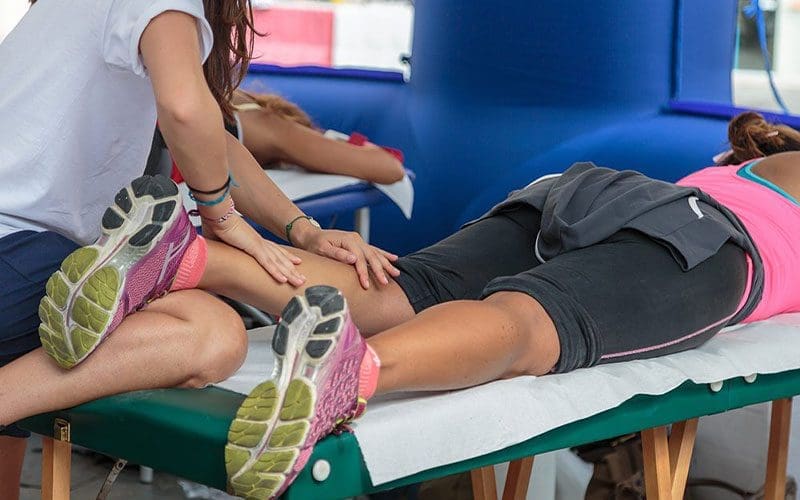
Published: March 28, 2019
Athletic Massage Benefits
When you think of a massage, you may envision the soft melodic tunes of flutes playing as the soothing sounds of water cascades over rocks. However, that is not always the case as seen in sports massage. A sports massage can help heal sports-related injuries and improve performance by targeting trouble areas. Although sports massage can be very beneficial for the body, it can also be harmful if it is not performed correctly.
There are many benefits to massage. It increases muscle flexibility, decrease scar tissue and promotes relaxation. In sports massage, treatment within 2 hours post-exercise can assist in decreasing the chances of delayed onset muscle soreness as well as increase range of motion. Performing the sports massage within the two hours after exercise you help to push toxins out of the area that would cause delayed soreness to occur. Sports massage warms up the muscle tissue, which excites the fibers allowing for the muscle to be able to be stretched which over time will allow increased range of motion. Massage can create a similar effect to at home solutions, such as foam rolling and other hand rollers. For an injury, massage can help reduce swelling and aid in the warming up of an injured area for rehabilitation. It’s important to note that a massage should only be administered once the inflammation process is complete. If it is performed before the inflammation process has completed a delay in healing and prolonged inflammation can occur.
There are some common misconceptions about sports massages. For example, massages, do not have any effect on stride length or stride frequency, or assist in muscle fatigue between exercises, such as with pitchers arms in between innings. Massage, does not decrease muscle strength when performed prior to exercise. Massage, also does not remove lactate from the blood after exercise. It is also important to know that a massage can dehydrate you. Try to drink 3 to 4 8oz. cups of water within the first few hours after receiving the massage, to get the full benefit and not become sore or have pain from the massage later.
Be sure to make your therapist aware of your personal medical history. Be sure to communicate with your therapist if you have any of the following conditions.
- Bleeding disorders
- Thrombosis
- Skin diseases
- Cancer sites
- Acute injuries such as sprains or strains
- Fractures
- Blood clots
- Tumors
- Hypersensitivity to touch
Side effects of massage may include pain, bruising, swelling, and dehydration